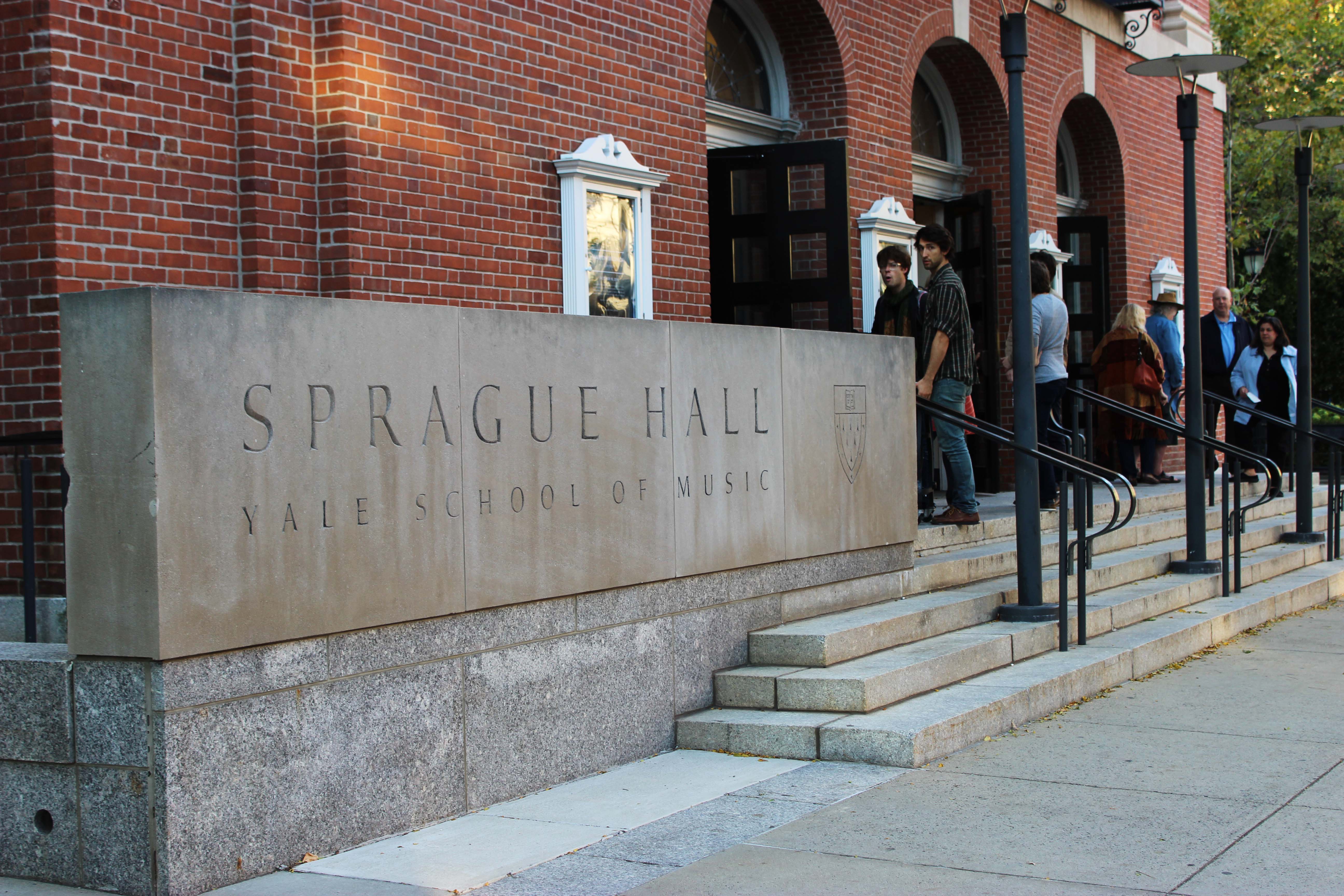
Yal
“Voices,” the final work of music composed by former Yale School of Music Dean Ezra Laderman, had its world premiere on Saturday atop the Morse Recital Hall stage.
Vocalists Nola Richardson MUS ’20, Gene Stenger MUS ’15 and Isaac Bray sang the composition’s libretto, which was based on United States poet laureate Robert Pinsky’s translation of Dante’s “The Inferno” — a 14th century epic poem. Violists Emily Brandenburg MUS ’17 and Julia Clancy MUS ’22 and The Argus Quartet — the Music School’s Fellowship-Quartet-in-Residence — accompanied Richardson, Stenger and Bray, who played characters from “The Inferno.”
Pinsky began the concert by reading excerpts from his translation. Between passages, Pinsky paused to explicate the lines of poetry and reminisce on his collaboration with Laderman.
“In my experience, Ezra was much more than a musician of sense. He loved words and drama deeply, and it was a pleasure working with him,” said Pinsky.
After Pinsky’s reading, the performers took to the stage. The music, written for three voices and strings accompaniment, included a comprehensive set of selections from “The Inferno,” ranging from Dante’s introduction to Virgil to his encounters with the lustful lovers Paolo and Francesca, the Greek hero Ulysses and the frightful kin-eating Ugolino. Pinsky noted that Laderman wanted to include as much of the original poem as possible into his libretto.
Agata Sorotokin ’19 said she thought Pinsky’s translation was “stellar,” adding that she originally read “The Inferno” last year as a student in Directed Studies. She noted that the music’s tonality took her by surprise.
While the 90-minute performance was meant to convey a flowing narrative, for Joann Whang MUS ’09, the Argus Quartet’s cellist, it was the continual return of small moments and notable themes throughout the score that made the piece memorable.
Yet the performance did not come without challenges. Whang said Bray, who commuted from Boston to sing baritone during the performance, could only be present for one rehearsal prior to the concert.
“To do this performance and do it in the moment, spontaneously, was pretty special,” Whang said. “Also the writing is such that there are so many things going on at any given moment that you’re basically at high alert at any time.”
While the evening was a celebration of Laderman’s final opus, it was equally a commemoration of his collective career as a composer. Gene Kimball, senior recording engineer at the Music School, worked with Laderman for over 20 years, helping to record nearly one dozen records and numerous premieres of the composer’s works during this time. Kimball said Laderman would have loved the evening because he loved hearing his compositions performed.
For Laderman’s family, the evening was particularly poignant.
“He would have been so gratified to know that this work was done, and with such good performers. This would have been very rewarding,” Aimlee Laderman, Laderman’s wife, said. Several other members of Laderman’s family, including his granddaughter Irit, also attended the premiere.
Laderman passed away on Feb. 28, 2015 after serving as a professor of composition at Yale from 1988 to 2014 and dean of the Music School from 1989 to 1995.







